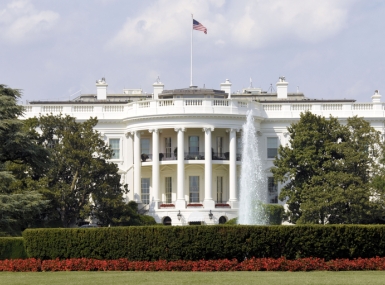Supreme Court to hear case on ADA vs qualified immunity
Author

Lisa Soronen

Charlie Ban
Upcoming Events
Related News
When police officers entered Teresa Sheehan's room in a group home for persons with mental illness, she threatened to kill them with a knife she held, so they retreated. When the officers reentered her room soon after leaving it, Sheehan stepped toward them with her knife raised and continued to hold it after the officers pepper sprayed and ultimately shot her.
Title II of the Americans with Disabilities Act (ADA) provides that individuals with a disability must be able to participate in the "services, programs, or activities of a public entity," and that their disabilities must be reasonably accommodated.
Sheehan, who survived the shooting, argues that Title II of the ADA applies to arrests and that the officers should have taken her mental illness into account when reentering her room. Her proposed accommodations included: respecting her comfort zone, engaging in non-threatening communications and using the passage of time to defuse the situation.
The 9th U.S. Circuit Court of Appeals agreed with Sheehan in City and County of San Francisco v. Sheehan that Title II of the ADA applies to arrests. The ADA applies broadly to police "services, programs, or activities," which the 9th Circuit interpreted to mean "anything a public entity does," including arresting people. The court refused to dismiss Sheehan's ADA claim against the city reasoning that whether her proposed accommodations are reasonable is a question of fact for a jury.
The 9th Circuit also concluded that reentry into Sheehan's room violated the Fourth Amendment because it was unreasonable. Although Sheehan needed help, "the officers had no reason to believe that a delay in entering her room would cause her serious harm, especially when weighed against the high likelihood that a deadly confrontation would ensue if they forced a confrontation."
State and local government officials can be sued for money damages in their individual capacity if they violate a person's constitutional rights. Qualified immunity protects government officials from such lawsuits where the law they violated isn't "clearly established."
The 9th Circuit refused to grant the officers qualified immunity related to their reentry: "If there was no pressing need to rush in, and every reason to expect that doing so would result in Sheehan's death or serious injury, then any reasonable officer would have known that this use of force was excessive." The U.S. Supreme Court will review the 9th Circuit's qualified immunity ruling.
The State and Local Legal Center's amicus brief argues that the ADA should not apply to arrests. While few police departments have the resources to adopt specialized approaches to responding to incidents involving the mentally ill, no conclusive evidence indicates that these approaches reduce the rate or severity of injuries to mentally ill suspects. No one-size-fits-all approach makes sense because police officers encounter a wide range of suspects with mental illnesses. And even psychiatrists much less police officers who aren't mental health professionals cannot predict with any reasonable degree of certainty whether an armed suspect with a mental illness will harm himself or herself or others in an emergency. Finally, because the officers in this case could not predict whether Sheehan would harm herself or others if they did not reenter her room, they are entitled to qualified immunity.
Attachments
Related News

Federal judge temporarily halts FEMA disaster mitigation grant program termination
On April 4, the Federal Emergency Management Agency (FEMA) announced it will not allocate $750 million this year for the Building Resilient Infrastructure and Communities (BRIC) grant program. According to the press release, FEMA will also stop funding BRIC projects that were previously approved and are still underway.

DOJ releases updated list of designated sanctuary jurisdictions
On August 5, the U.S. Department of Justice (DOJ) published an updated list of designated “sanctuary jurisdictions” following the Administration’s Protecting American Communities from Criminal Aliens Executive Order.

FEMA releases nearly $1 billion in preparedness grants
On August 1, the Federal Emergency Management Agency (FEMA) announced nearly $1 billion in new grant funding to help states, local governments, tribes and territories strengthen disaster preparedness.